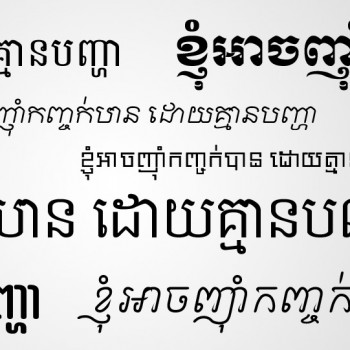Free Download 20q Mind Reader For Mobile
Download this app from Microsoft Store for Windows 10, Windows 8.1, Windows 10 Mobile, Windows Phone 8.1, Windows Phone 8, Windows 10 Team (Surface Hub), HoloLens. See screenshots, read the latest customer reviews, and compare ratings for freda epub ebook reader. 176x208 award Java Games - Download with Nokia, Samsung, Motorola, LG, Sony Ericsson, Blackberry and for all other Java supported J2ME mobile phones. We are looking for a Dutch moderators / translators. See details to apply clicking the button below. Download Professor Q - 20Q mind reader. Professor Q is an all-new mind reading 20Q (20 questions) trivia game. Choose something for the Professor to guess, answer a few trivia questions, and you'll be amazed by how often he manages to read.
Oct 09, 2009 20Q Mind Reader utilizes a simple, clean interface with touch-screen commands used to answer questions, select menu options, and move letters around the screen. Download Free 20Q Mind Reader Mobile Games to your Android, iPhone and Windows Phone mobile and tablet. Get free downloadable 20Q Mind Reader Mobile Games for your mobile device. Free mobile download JAR from our website, mobile site or Mobiles24 on Google Play.
Description
favourites
Category: Simulation
| Type | Electronic game Online game iOS iPad App customized knowledgebases |
|---|---|
| Inventor(s) | Robin Burgener [2] |
| Company | Radica (2004 - 2011) Techno Source (2011-2015) Uncle Milton Industries (2015–2017) Irwin Toys (2017-present) |
| Country | United States |
| Availability | 1988–present |
| Materials | Artificial Intelligence |
| Official website | |
20Q is a computerized game of twenty questions that began as a test in artificial intelligence (AI). It was invented by Robin Burgener in 1988.[1] The game was made handheld by Radica in 2004, but was discontinued in 2011 because Techno Source took the license for 20Q handheld devices.[citation needed]
The game 20Q is based on the spoken parlor game known as twenty questions, and is both a website[2] and a handheld device. 20Q asks the player to think of something and will then try to guess what they are thinking of with twenty yes-or-no questions. If it fails to guess in 20 questions, it will ask an additional 5 questions. If it fails to guess even with 25 (or 30) questions, the player is declared the winner. Sometimes the first guess of the object can be asked at question 14.
Principle and history[edit]
The principle is that the player thinks of something and the 20Q artificial intelligence asks a series of questions before guessing what the player is thinking. This artificial intelligence learns on its own with the information relayed back to the players who interact with it, and is not programmed. The player can answer these questions with: Yes, No, Unknown, and Sometimes. The experiment is based on the classic word game of Twenty Questions, and on the computer game 'Animals,' popular in the early 1970s, which used a somewhat simpler method to guess an animal.[3]
The 20Q AI uses an artificial neural network to pick the questions and to guess.[1][4] After the player has answered the twenty questions posed (sometimes fewer), 20Q makes a guess. If it is incorrect, it asks more questions, then guesses again. It makes guesses based on what it has learned; it is not programmed with information or what the inventor thinks. Answers to any question are based on players’ interpretations of the questions asked. Newer editions were made for different categories, such as music 20Q which has the player think of a song, and Harry Potter 20Q, which has the player think of something from the world of the Harry Potter series.
The 20Q AI can draw its own conclusions on how to interpret the information. It can be described as more of a folk taxonomy than a taxonomy. Its knowledge develops with every game played. In this regard, the online version of the 20Q AI can be inaccurate because it gathers its answers from what people think rather than from what people know. Limitations of taxonomy are often overcome by the AI itself because it can learn and adapt. For example, if the player was thinking of a 'Horse' and answered 'No' to the question 'Is it an animal?,' the AI will, nevertheless, guess correctly, despite being told that a horse is not an animal.
First, it allows you to from a wide range of video-sharing sites, such as YouTube, Vimeo, Facebook and any more. Bollywood movies free download for mobile phones for pc. Then, all video resolution can be supported like.

Patent applications in the US and Europe were submitted in 2005.[5]
In August 2014, 20Q.net Inc., with Brashworks Studios, developed and released an iOS iPad version available at the Apple iTunes store.
Handheld device[edit]
The built Artificial Neural Network is not resource intensive either to store or to compute, thus it could be embedded in small, less powerful devices. Currently, there is a handheld version of the AI. The device contains a small portion of the original 20Q website knowledge base; unlike the online versions of the game, the handheld version does not have the ability to learn.
The 20Q artificial intelligence is different from less flexible, and extremely large, expert systems. Its modularity, adaptability, and scalability means that it can be applied to other, more complex devices, for more complex uses.

Game show[edit]
On June 13, 2009, GSN began a TV version of the game, hosted by Cat Deeley, with Hal Sparks as the voice of the computer.
References[edit]
20q Mind Reader Online
- ^ abBurgener, Robin. 'Engineering Colloqium: 20Q The Neural Network Mind Reader'. Goddard Space Flight Center. Archived from the original on 2013-02-16.CS1 maint: BOT: original-url status unknown (link)
- ^Official 20Q Website
- ^with information from: LiCalzi O'Connell, Pamela. 'Vegetables And Minerals On The Radar' The New York Times. March 27, 2003; Burgener, Robin, computer architect, inventor.
- ^Official 20Q Q&A
- ^US application 102,105[1] and EP 1710735
